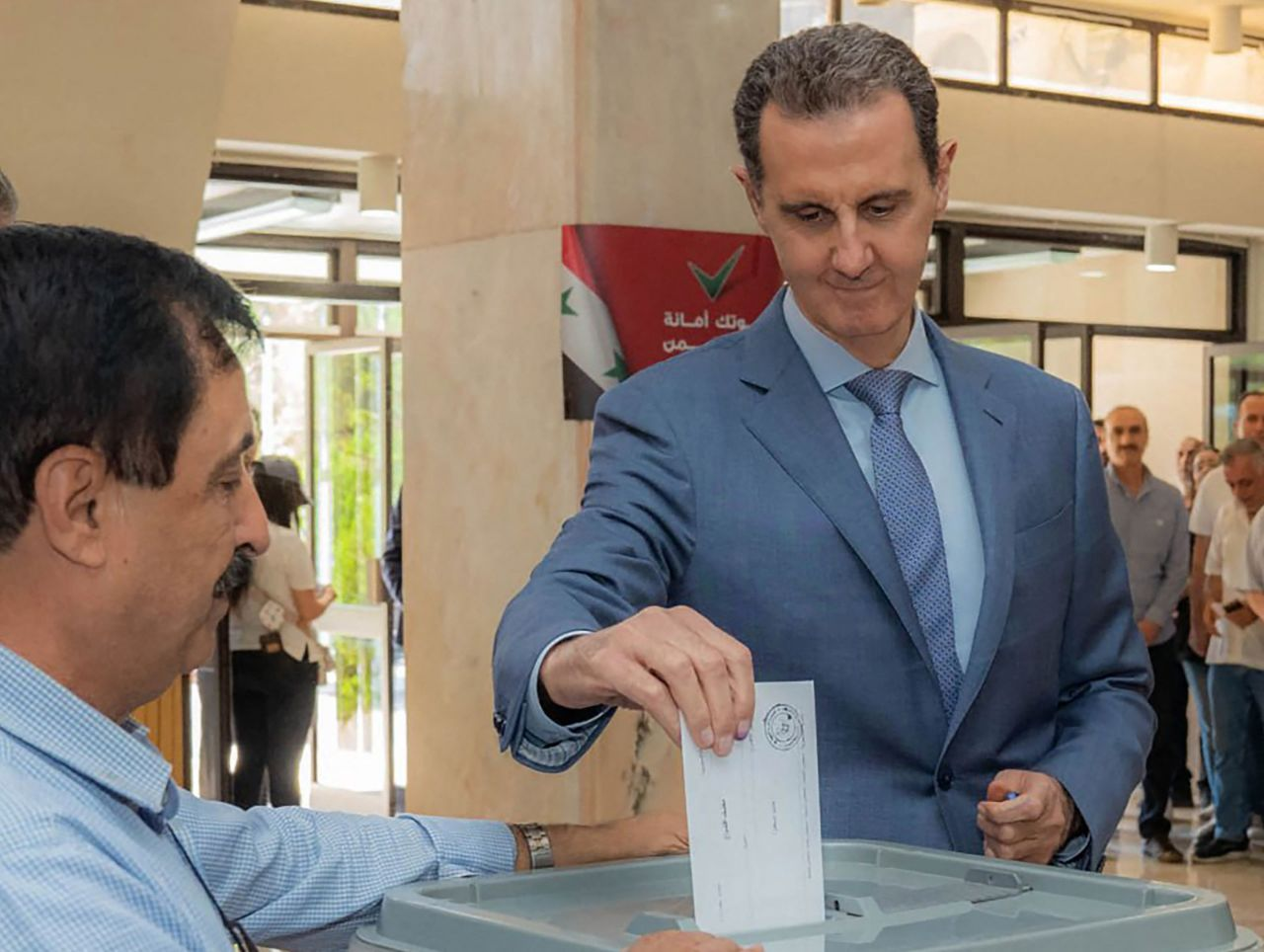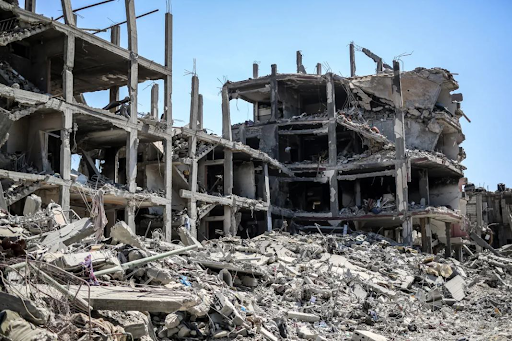
Syria's Assad: Ready to meet Erdogan if it serves Syria's interest
Syrian President Bashar al-Assad confirmed on Monday that he is ready to meet his Turkish counterpart, Recep Tayyip Erdogan, "if the meeting serves the country's interest."
Speaking about the return of relations with Turkey, following his vote today in the legislative elections, President al-Assad said: "If meeting President Erdogan leads to results, or if hugging or reprimanding serves the country's interest, then I will do it."
He explained that "the problem does not lie in the meeting, but in its content," noting that proposing the meeting "may be important, as it is a means to achieve a goal, but we have not heard what the goal is, and what the solution to the problem is."
President al-Assad added that "the first question we ask is why have relations deviated from their natural course for 13 years?", noting that "he has not heard any Turkish official speak about this point, in an explicit manner."
In this context, President Assad stressed that the meeting is "a means, and the means need rules and references for work," adding that "the failure of this means at some point may make us go in a worse direction, and pay a higher price."
At the same time, he stressed the positive spirit towards any initiative to improve the relationship, saying that this is "the natural thing, no one thinks of creating problems with his neighbors," but that "does not mean going without rules."
He added: "In any potential meeting, we will ask what its reference is. Will this reference be the cancellation or termination of the causes of the problem, which are represented by supporting terrorism, and withdrawing from Syrian territory?", stressing that this "is the essence of the problem, and there is no other reason."
President Assad said that "if there is no discussion about this essence, then what does the meeting mean?", noting that Syria "seeks to work that achieves results, as it is not against any procedure or meeting, but what is important is that it leads to positive results that achieve the interests of Syria and Turkey, at the same time."
He stressed that "any meeting that will take place with the Turkish side will be announced, there is nothing secret," adding that "Syria insisted that the meeting is necessary, regardless of the level, and the talk here is not about a meeting between two presidents."
President Assad pointed out that "the meetings have not stopped, but are ongoing," revealing that "there is a meeting being arranged at the security level by some mediators, and we were positive in this regard."
Assad explained that "the term normalization of relations with Turkey is a mistake. Normalization of relations with a country is a coercive process that aims to impose normal relations that do not exist," while "we are talking about a neighboring country, and we have relations that date back centuries, which means that relations must be normal."
He added: "If we want to reach normal relations, and this is what we seek in Syria, can the occupation and support for terrorism be part of normal relations between countries?" Assad replied that this is "of course impossible."
Accordingly, President Assad stressed the necessity of "withdrawing all that is abnormal in this scene" in order to talk about "normal relations between Syria and Turkey."
He stressed that "relations will be normal when the abnormal matters are withdrawn without normalization or coercive measures, and without the opinion of governments," so that "these relations will proceed in their natural form in the direction of returning to what they were before the war," especially since normal relations "have proven that they lead to protecting the borders that Turkish officials are talking about, as was the case previously."
In this context, President Assad explained that "friends are fully aware of these facts, and they have known this position since the first initiative that took place 5 years ago."
He explained that "talking about initiatives is new, but the beginning of the initiatives was 5 years ago, and during that time we repeated the same position: remove the reasons for the results to appear," adding that the matter "does not need political and media tactics and acrobatics."
He said that "Syria's friends sometimes demand some measures that are open to dialogue and discussion, but measures are one thing, and bypassing the principle is another," stressing that "we cannot bypass the principles on which we build our national interests."
President Assad added that "no guarantees have been provided to Syria so far," and "we are proceeding in a positive manner, but based on clear principles, based on the principles of international law and sovereignty."
The Syrian president stressed that "if positive results are not achieved, the results will be negative, in this case, either we win or we lose, we, Turkey and the allies", meaning that "everyone wins or everyone loses, there is no middle ground".
President Assad's statements come at a time when official Turkish statements regarding developments in relations with Syria are continuing.
Turkish President Recep Tayyip Erdogan confirmed earlier that he had issued directives to Foreign Minister Hakan Fidan to meet with President Assad and "begin restoring relations between the two countries".
In a press conference on the sidelines of the NATO summit in the US capital, Washington, the Turkish president revealed that Fidan is authorized to organize a meeting with President Assad in a third country.
Iraqi Foreign Minister Fuad Hussein announced on Friday evening that an initial agreement had been reached with Syria and Turkey regarding holding a meeting that would bring together officials from the two countries in the Iraqi capital, Baghdad.
Hussein said, in statements from Washington, that "there is communication at the level of the Iraqi leadership with the Syrian and Turkish sides, and the date will be determined after returning to Baghdad."





















































